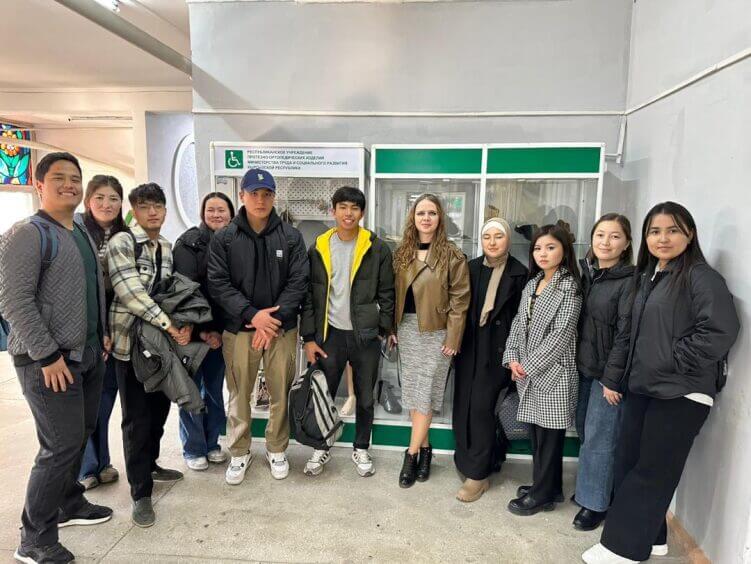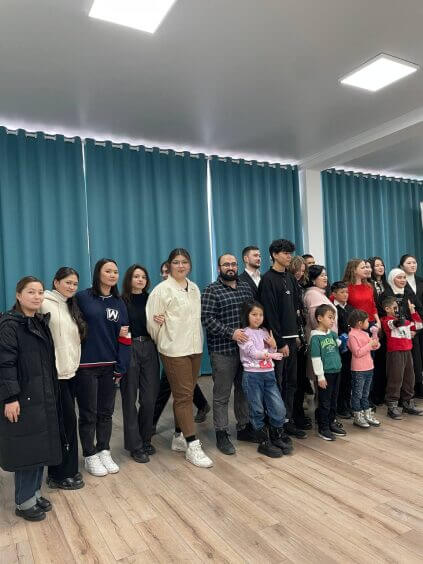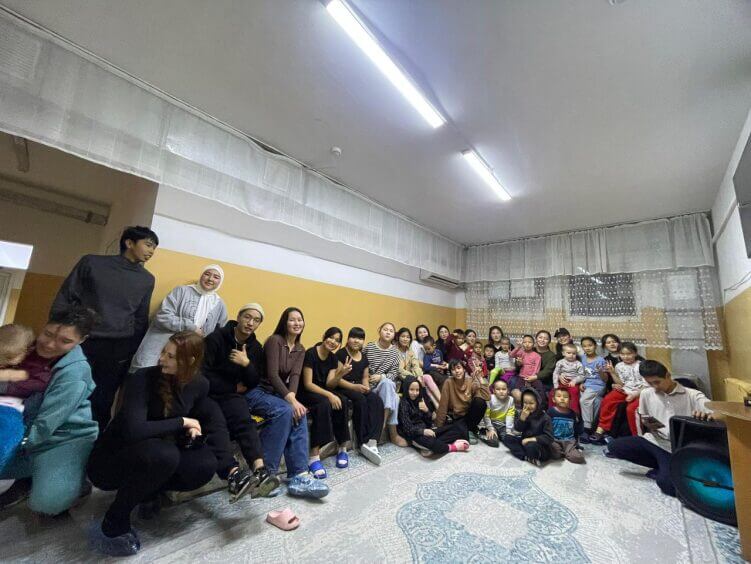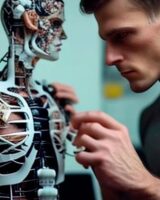
- Kyrgyz Republic, Bishkek city, Akhunbaev Street, 92, Main Building, office 115
- License:
- D2019-0001
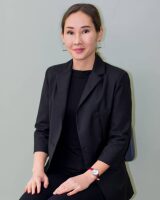
- Position:
- Декан
- rainersabart@gmail.com
- 0553229953
- Kyrgyz Republic, Bishkek city, 92, Akhunbaev Street, main building

- Position:
- Секретарь
- Kyrgyz Republic, Bishkek city, 92, Akhunbaev Street, main building
Advantages of studying in this specialty:
Highly qualified faculty successfully combining teaching and research activities;
Opportunity to participate in academic mobility programs with European universities;
Student science;
Sports sections and creative teams, student self-governing bodies.
Entrance requirements
Complete secondary education. Passing the ORT and an additional subject in physics. The threshold score is set by the Ministry of Education and Science of the Kyrgyz Republic.
Employment and career
Upon graduation graduates are awarded the qualification "Medical Engineer".
Medical institutions:
operator of functional diagnostics (CT, MRI, ultrasound, etc.).
perfusionist
radiophysicist in the department of radiology and radiation therapy.
clinical engineer in rehabilitation, physiotherapy and kenesiotherapy, occupational therapy
clinical engineer in the hemodialysis department
Clinical engineer in laboratory technology
Clinical engineer for dental equipment operation
clinical engineer in medical robotics
Universities:
Teacher of technical and biomedical disciplines.
Scientific and practical centers of medical, technical, sports profile:
researcher
Developer-designer of biomedical equipment
Medical equipment sales sphere:
director
manager
marketer
medical engineer
applicator specialist
Companies involved in the development of biomedical computer programs and applications:
program developer
tester
designer
Companies involved in the production of medical equipment:
engineer
developer
tester
designer
metrologist
marketer
data science developer
Opportunity to continue your studies at master's or postgraduate level.
Master's degree in the following directions:
Biotechnical Systems and Technologies (KSTU);
Perfusiology (Germany)
Development of biomedical devices (Russia, Germany)
Biophysics
Clinical Engineering (Russia, Germany)
Postgraduate studies in engineering specialties
Biomedical engineering refers to the field of engineering and scientific knowledge, which includes a set of means, ways and methods of human activity aimed at: participation in the organization and conduct of diagnostic studies, treatment procedures with the use of instrumental and hardware-software means.
Biomedical Engineering Club is a collaboration of medical (KGMA) and engineering (KSTU) communities, whose mission is to promote the expansion and utilization of knowledge in the field of biomedical engineering.
Club work
1. Speaking at conferences
2. Participation in various projects
3. Realization of socially significant projects
4. Regular information about events and opportunity to participate in them
5. Gaining skills and abilities lkz realize their projects
6. Possibility of patenting
7. Learning basic medical and engineering topics
8. Learning the basics of scientific research and experimentation
9. Study of bioethics
10. Practical skills: learning soldering, electronics and microcontrollers (Arduino, Raspberry Pi)
11. study of microcontroller programming
12. study of medical technology
13. Master classes and consultations from specialists
14. Study tours to factories, laboratories and medical institutions
15. Fablab
16. Interesting spending time in a circle of like-minded people
At the beginning of 2023, the KGMA and KSTU announced ambitious plans to create a joint faculty that would pioneer medical engineering in the country. This step was decisive in many aspects, as medical engineering was a relatively new field of education and required thorough training in both medical and technical fields.
Initially, a working group of experienced faculty and specialists from both universities was established to develop curricula, programs and organize the infrastructure for the future faculty. This required intensive work and harmonization between the two educational institutions. Working together strengthened the cooperation between KGMA and KSTU and brought together the best practices of both universities.
By the time the faculty opened in September 2023, state-of-the-art curricula had been developed. There are now 18 motivated and talented young people studying in the first year, eager for new knowledge and challenges.
The opening of the faculty was an important event for both universities and the medical industry as a whole.
